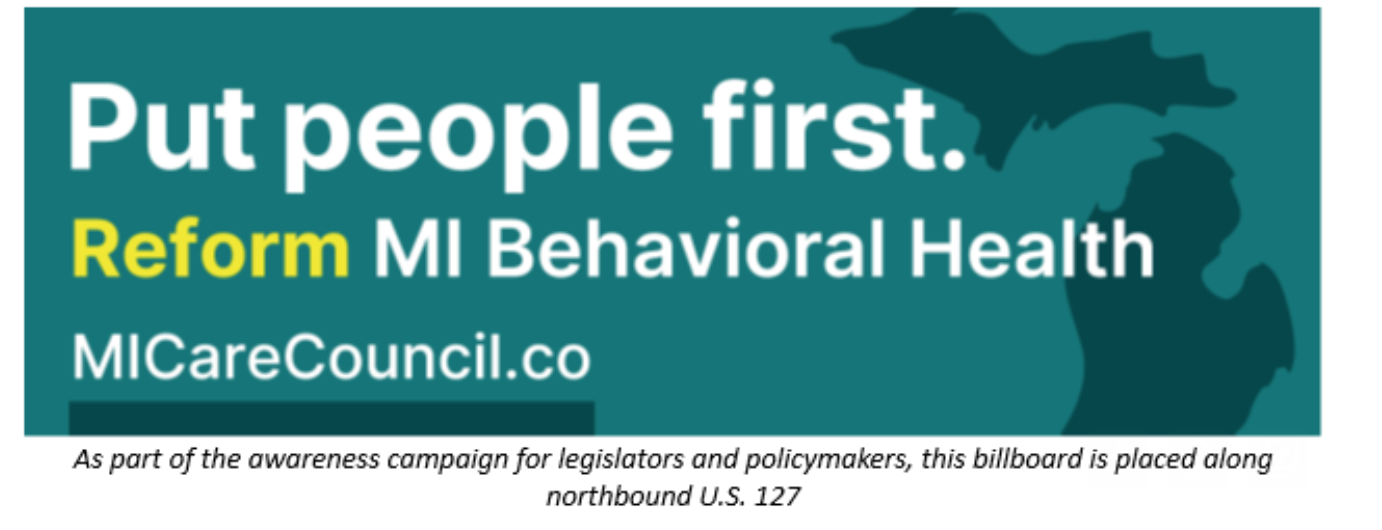Special to the Lansing News Wire
LANSING – MI Care Council, an independent voice for healthcare and social support providers across Michigan, is raising awareness with legislators and policymakers of the need to reform the behavioral health system in Michigan at the 2025 Mackinac Policy Conference.
“Right now, too many Michiganders are blocked from the care they need,” said Dan Cherrin, MI Care Council executive director. “Why? Because our behavioral health system prioritizes paperwork over people. It’s weighed down by outdated structures, unnecessary bureaucracy, and a confusing web of administrators that limit access and choice. It doesn’t have to be this way.”
Over 300,000 Michigan citizens live with severe and persistent mental illness or an intellectual / developmental disability. While they currently receive physical healthcare from one of nine health plans, their behavioral healthcare is limited to the region in which they reside and authorized by a Prepaid Inpatient Health Plan (PIHP) and Community Mental Health Authority (CMHA). The care they receive is determined solely by geography.
This results in an unnecessary and wasteful Medicaid behavioral health system due to the three layers of administration (excluding direct providers and the federal government) funding goes through before it reaches the people who need care. The same organizations that authorize Medicaid services are also responsible for paying for them—creating a built-in conflict of interest. Each administrative layer leaves less funding for the people who need care. It limits access to care, choice of providers, and the ability to move or transfer a service.
There’s a better way—and it’s already working in other states. A model that puts care over cost-cutting has been successful in Connecticut, where Administrative Services Organization’s (ASOs) handle authorizations without financial bias. ASOs have no financial reason to deny services. Fee schedules ensure fair, transparent payment rates based on actual costs. People get the care they need—without bureaucratic interference. Providers contract directly with Medicaid and receive fair rates. CMHs return to their original role—providing direct services, not managing care. Replacing the PIHPs with a small number of ASOs would cut unnecessary costs. In Connecticut, switching to ASOs meant 97.5% of Medicaid dollars went directly to services instead of administrative costs.
Michigan can do the same. A system that puts people first would mean:
- Less bureaucracy: Eliminate unnecessary administrative layers
- Stronger access to care: Expand provider choice and mobility
- Fair payment: Transparent, predictable rates for providers
- Real accountability: Oversight that protects patients—not paperwork
“Behavioral health reform isn’t about politics—it’s about people,” Cherrin said. “We need a system that puts care first, cuts the bureaucracy, and gives Michiganders the choice and access they deserve.”
MI Care Council and a growing coalition of providers and advocates are working to redesign a system that works for people—not against them. Learn more at www.micarecouncil.co/put-people-first.
About MI Care Council:
The MI Care Council is the independent voice for healthcare and social support providers across Michigan. They advocate for a person-centered, integrated system of care that prioritizes access, quality, consumer choice, and efficiency. Their mission is to promote policies that strengthen a coordinated, high-value continuum of care—ensuring services are responsive, portable, and aligned with the needs of every Michigander.



